Pubic hair growth is regulated by the presence of androgens like testosterone in the body. If you notice problems with growth it might warrant a visit to the endocrinologist to make sure you are not suffering from any hormone imbalances. Understand that it is normal for all hair density to decrease as we get older. Like hair growth throughout the body, there are things that can be done stimulate pubic hair growth.
Understand the Growth Cycle
Each hair system in the body operates on a growth/stasis/rest cycle. Pubic hair is no exception. The growth phase is known as Anagen. This cycle can last from 2 to 10 years. At any given point 80 to 90 percent of hair is in the Anagen phase. Keratin and protein are being made continuously. The hair is constantly growing. The length of the hair has a lot to do with the nourishment the hair follicle receives and the length of the individual's Anagen phase.
The next phase is called Catagen. In this phase the hair is no longer growing, though chemical processes are taking place in the hair follicle. This lasts from 3 weeks to 3 months.
Finally there is the Telogen phase. During this period the hair is just there as a place holder for new hair that is entering the Anagen phase. As the new hair sprouts, the old hair is pushed out. The cycle is the same for pubic hair except that each phase has a shorter time frame.
Hormonal Balance
As we age--and in some cases regardless of age--our hormones can become unbalanced. As a result we can begin to experience hair loss, or excessive hair growth, emotional upsets and other issues. It is important to note if any pubic hair loss or lack of growth is accompanied by any other medical changes. An endocrinologist will be able to help identify which changes are hormone based and which can be controlled through diet or vitamin supplementation.
Nutritional Balance
Watch your diet. We are what we eat. Our hair and skin are a manifestation of our nutrition and the care we take of our bodies. Eating a balanced diet is the best way for the body to get the nutrients we need for optimal health. Too much sugars or starches can create an acid state in the body that impedes proper nutrient balance. Lean proteins and cruciferous vegetables like broccoli and cabbage, which contain sulfur, are of great benefit for hair growth all over the body. Our fast-paced lifestyles sometimes make getting proper nutrition difficult. This is where supplementation with vitamins and minerals come in. Brewer's yeast is an excellent supplement for hair growth. With its full complement of B vitamins, minerals like selenium and amino acids, it benefits many of the tissue structures of the body.
Other Measures
Dehydroepiandrosterone (DHEA) is a steroid that is produced naturally by the adrenal glands. It helps to create both estrogen in women and testosterone in men. With our poor diets, fast-paced lifestyle and lack of adequate rest, our adrenal glands can become overtaxed. As a result the stores of DHEA in the body can be degraded. A 2009 study of young women with adrenal insufficiency published in the Journal of Clinical Endocrinology and Metabolism has shown that DHEA was helpful in the regrowth of pubic hair. Used widely in weightlifting communities to maximize muscle gains, DHEA can have an estrogenic effect. If you have a family history of hormone related cancers, it is wise to consult with an endocrinologist to assess if any benefit derived will be worth the health risk. A commonly recommended dosage for DHEA is 25 mg per day.
Massage – Increased blood flow to the scalp increases nourishment to the hair follicles and can stimulate growth. It stands to reason that perhaps the same holds true for the nether regions. Besides which the side bonuses are not entirely disagreeable.
Related Articles

Arginine for Hair Growth

L-Lysine for Hair Growth

Uneven Hair Growth
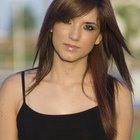
Essential Enzymes for Hair Growth

Can Vitamins Stop Hair Breaking?

How Exercise Increases Hair Growth
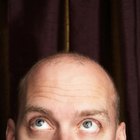
Chlorella and Hair Loss

Vitamin B2 for Hair Growth

About Seaweed and Hair Growth

The Effects of Vitamin-D Deficiency on ...
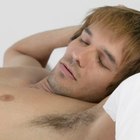
Stages of Underarm Hair
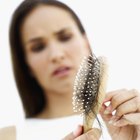
Is Zinc Good for Hair Growth?
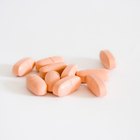
Vitamins for Damaged Hair

What Are the Causes of Graying Hair?

Estrogen Cream for Hair Removal

Traditional Uses of Cuscuta

What Vitamins Help the Liver?

What Are the Causes of Hair Shedding in ...
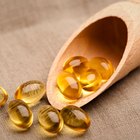
Selenium & Zinc for Hair Loss

How to Increase Chest Hair Growth
Writer Bio
Demetria Dixon has been writing for over 29 years. She attended the University of Texas in Austin. Demetria's publication credits include, a local authors compendium, DiverseArts bi-monthly magazine and Houston Style. She has also been published online through Associated Content, Examiner and Helium. Ms. Dixon is an avid blogger and stand up comedian.